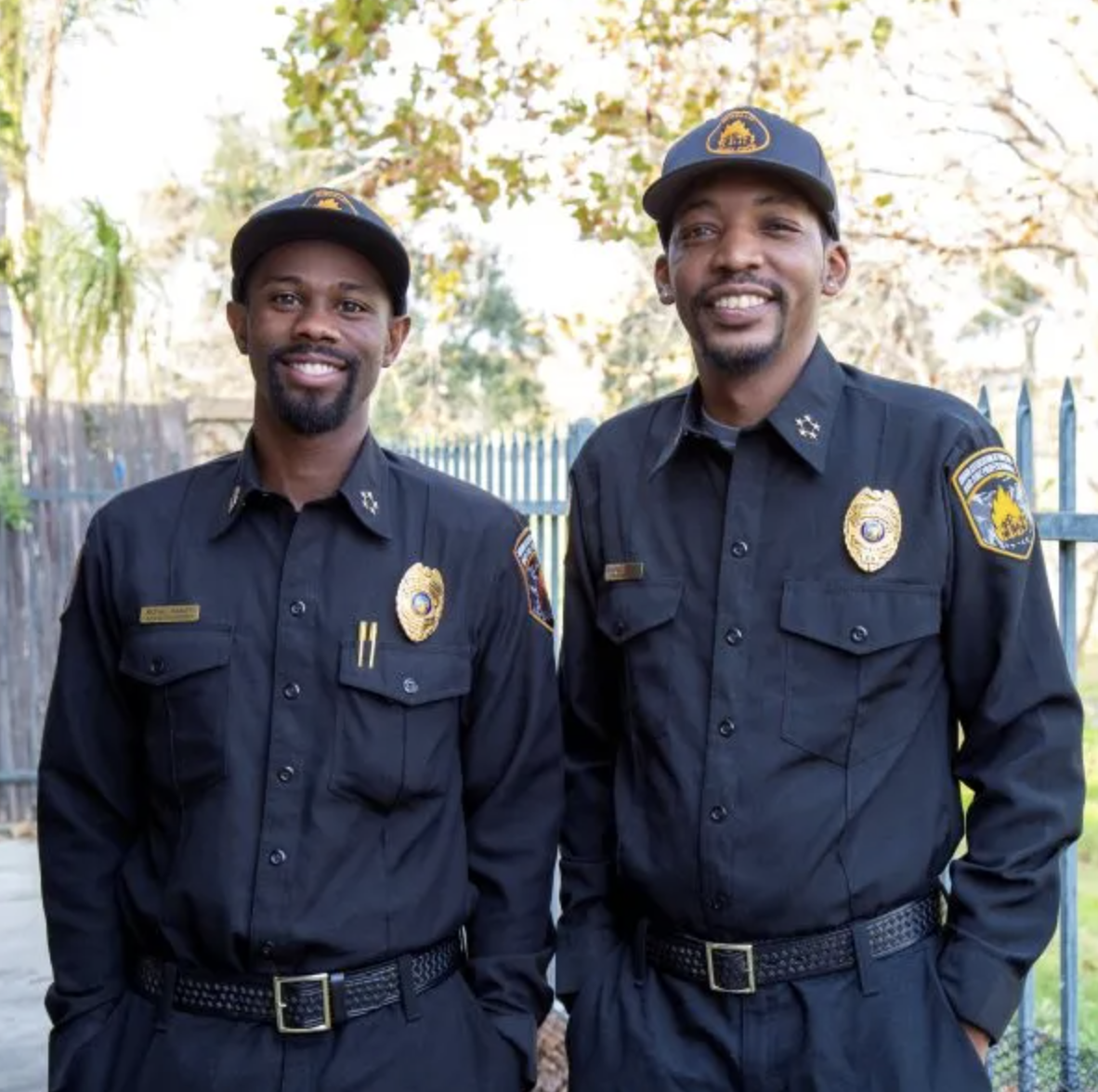Some 'Most Impressive' Law School Applicants Are Convicted of Serious Crimes
Some 'Most Impressive' Law School Applicants Are Convicted of Serious Crimes
By Allen Arthur, Route Fifty, August 18, 2021
word count: 1057
James Binnall and Frankie Guzman know the fortitude it takes to practice law after having been incarcerated. Dissuaded by the bar exam’s moral character determination, many formerly incarcerated people with law school ambition never pursue it, assuming convictions prohibit them from practicing law.
Yet Binnall and Guzman succeeded, mentored dozens of others, and co-founded the California System-Involved Bar Association, a network for current and prospective lawyers with criminal records.
Still, Binnall was surprised to get a call from David Lane, an attorney for moral character determinations at the State Bar of California. Not only did Lane accept Binnall’s invitation to CSIBA’s first convening, he wanted to give a presentation.
“To have (Lane) call me up and say, ‘I’m really interested in this topic. I have slides I want to present,’” recalled Binnall, an associate professor of law, criminology and criminal justice at California State University Long Beach.“It was blowing my mind.”
Lane and a colleague outlined for the 150 attendees the state bar’s moral character guidelines and how they’re interpreted. Then they stayed three more hours answering dozens of questions.
This synergy exemplifies the improving landscape in California for those considering law school post-incarceration. Though advocates and SBC representatives say the changes are in their infancy, a confluence of statewide education from formerly incarcerated attorneys and their allies and shifts within the state bar can offer a blueprint for other state agencies and licensing bodies to open their doors to formerly incarcerated people.
The evolving approach focuses on the bar’s moral character process, a massive background check where prospective attorneys must disclose even minor law enforcement interactions, including sealed records. Those with convictions often face tremendous burdens proving their “fitness” to be attorneys. Many assume they’re automatically disqualified. In some states, that’s true.
California Makes Changes
California’s changes began in 2017 when an SBC task force released a report recommending updates to the moral character system, including increased public transparency for decision-making guidelines and consistency of application.
“They found a lot of states didn’t have published standards that were very clear,” said Tara Clark, SBC’s program manager of moral character determinations.
The SBC created a working group, Clark says, to implement those recommendations, ensure the admissions committee had clear instructions for factoring in rehabilitative efforts, and that guidelines were accessible and understandable to prospective applicants.
Unlocking the Bar further moved the needle. The 2019 report from Stanford Law School found copious barriers for people with convictions, including insufficient training and guidance at SBC and widespread fear among prospective lawyers with past legal issues. These barriers disproportionately impacted current and potential students of color.
Response was swift, said co-author Debbie Mukamal, partly because of a roundtable discussion the authors convened while researching. Engaging stakeholders including students, law schools and the state bar in the report’s creation had them invested in the outcome. Mukamal then sat on the bar’s working group.
That cross-sector engagement has been key for Binnall and Guzman as well.
“[I bring together] the haves and the have-nots, the policy administrators … and the people who are really marginalized … who deserve better,” said Guzman, director of the Youth Justice Initiative at the National Center for Youth Law. “[James] is a little bit more of an insider because he works with these schools, he works with the state bar.”
By the 2020 CSIBA conference, there was real movement. Mukamal called the bar’s increasing outreach and transparency “a sea change.” Binnall said new practices have helped encourage people to be more open about their records and influenced the moral character process itself.
The “informal conferences” to which many people with records are summoned used to involve seven to eight people grilling an applicant—“akin to a parole hearing,” said Binnall.They’ve now three to four people and each relevant to the proceedings.
And training and clearer guidance from the SBC has resulted in more weight given to rehabilitation.
“It tends to be a lot more substantive, tends to be less adversarial, just calmer,” said Binnall.
Other States' Initiatives
New York seems to be learning from California’s approaches, which advocates hope start “a set of dominoes,” said Dieter Tejada, executive director of the National Justice Impact Bar Association. The New York State Bar Association removed mental health, the 11th state to do so, and immigration status questions from its exams, and the New York City Bar Association sent a letter to the state suggesting significant changes to what applicants must disclose.
“This is the first time as far as we know that the city bar has issued a letter of this sort. It’s historic for them to challenge or question a character and fitness practice of the state,” said Tejada, who has a law degree and was formerly incarcerated.
Despite the changes, James Chu remains only “cautiously optimistic.” A member of CSIBA’s executive board and a Los Angeles County deputy public defender, Chu echoes others when he suggests the bar's approach should grow more proactive.
“Let’s make it collaborative,” said Chu. “What can we do to facilitate your admission to the practice of law?”
All involved acknowledge the process has been slow. These efforts require states, agencies, or government bodies to dedicate time and resources, which many states aren’t yet willing to invest, sources said. And some states have laws barring people with various convictions from practicing law or holding certain jobs, something a working group can’t fix.
For states looking to shift, advocates say direct experience of formerly incarcerated people must inform the strategy. And researcher Megan Denver says that individual assessments offer far more benefits than blanket bans on people with records, but that they must be done thoughtfully
“There’s a lot of possibility and potential within an individualized framework,” said Denver, assistant professor of criminology and criminal justice at Northeastern University. “But when we don’t have transparency and we have discretion, there’s the potential for problems. We need both.”
Guzman points to the success achieved by formerly incarcerated attorneys as proof of concept.
“We’re saying, ‘Invest in the thing that already exists, that’s shown and proven to be effective.’ ”
Lane says that while upending practice feels like “a monumental task,” it has been smoother than expected.
“Anecdotally, in our experience, some of the most impressive applicants are the ones with the most serious acts of misconduct in their past,” he says. “The further down one falls, the further one has to climb. Bringing that experience to the practice of law is invaluable.”






